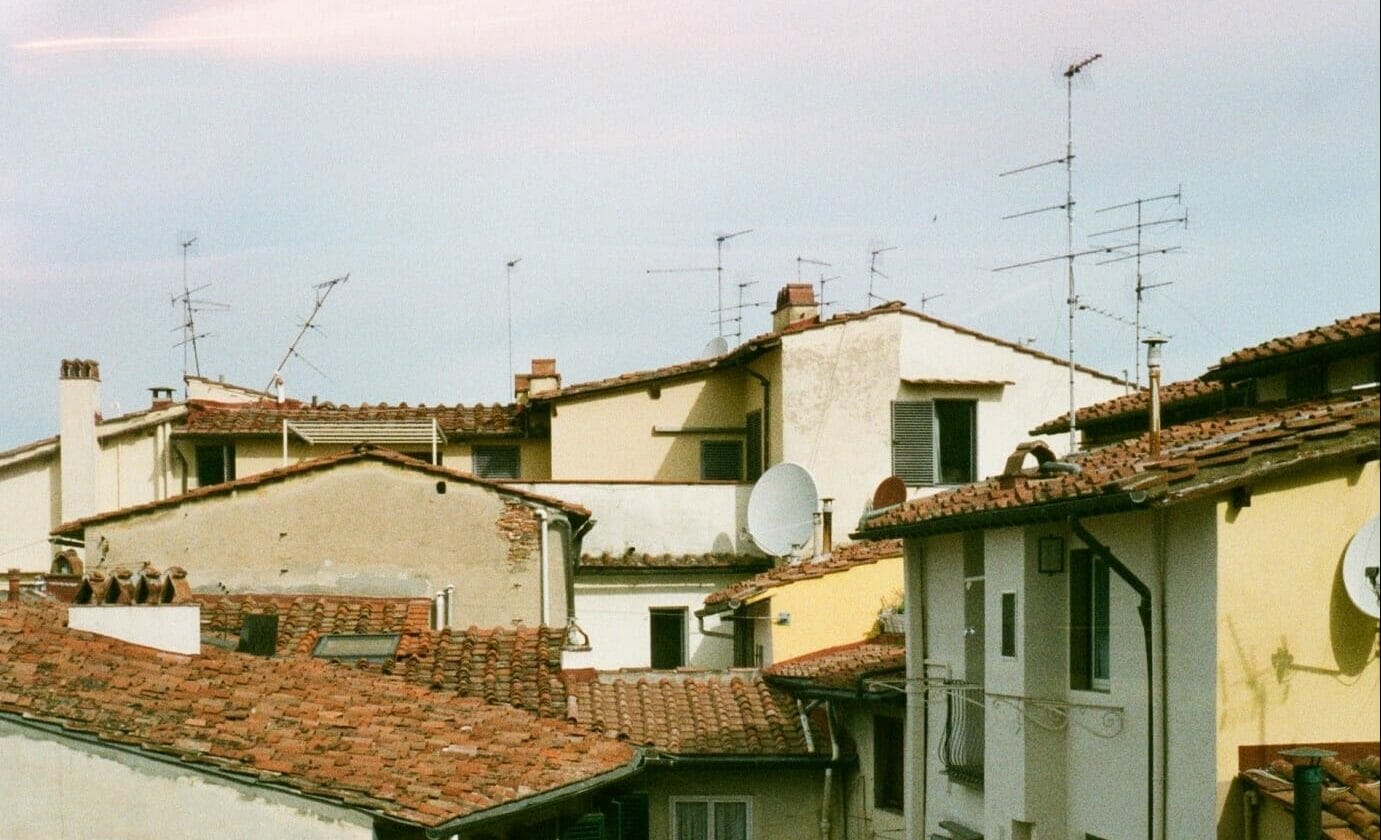Mounting a TV antenna as high as possible is essential to get a strong signal. In my experience, most people fail to take note of the basic rules. They often end up messing up the entire process of antenna installation. The installation of antennas requires mastery of the fundamental principles, like the range and quality of the antenna.
I will cover everything you need to know about antenna installation. I will guide you also how high you should set your antenna in this article.
I get a lot of questions about TV antenna installation; especially how high one needs to erect their antenna. The number of variables determines how high an antenna should go. Here, I will be addressing each in this guide.
How high should you mount your TV antenna? Well, a brief answer is as high as you possibly can. However, some other factors come into play here. These factors include how far your antenna is from the broadcasting tower, and the presence of obstructions (i.e. buildings, trees, hills, valleys). You should also take note of the quality and range of your antenna, the length of its coaxial cables, and the ideal mounting height.
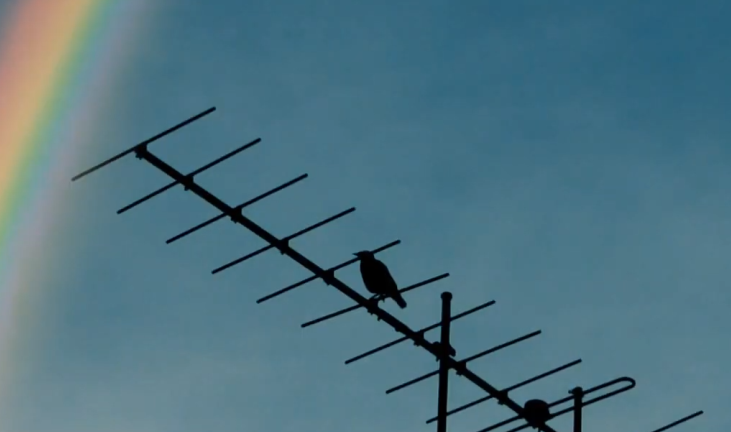
Things to Have a Closer Look at First
You should be aware of the factors that affect the signal strength and reception before mounting your antenna. Note that fewer obstructions will enhance your antenna’s signal reception capabilities. The quality of your antenna and the cable are impactful too. So, make sure you have taken note of these factors before installing your TV antenna.
It is noteworthy to mention here that you can use TV antenna boosters to enhance the signal strength and quality.
Distance to your Broadcast Towers
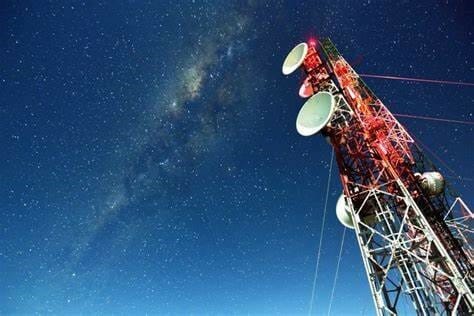
The number and the quality of the channels you receive are highly dependent on how far your antenna/TV is from the broadcasting towers. That is the most crucial aspect to consider before mounting your HDTV antenna.
You should be at least 65 miles from the broadcasting tower otherwise; your HDTV antenna will get poor signals. Ensure that you know how many TV stations are within a 65-mile radius of your location (There are many free apps in the app store android/apple that you can download to gauge this).
However, if you realize that you are not within a distance of 65 miles from the nearest broadcasting tower, do not panic. You need a long-range antenna that is capable of reaching fringe locations, which extend beyond 100 miles from the broadcasting tower. Check out long-range outdoor antennas that can suit your situation and pick one for your TV. (1)
Provided you are in an area that’s 65 miles from the broadcasting tower, then you need to check for the presence of obstructions.
Obstructions (Buildings, Hills, Trees, and Valleys)
Barricades like trees, tall buildings, massive trees, hills, and valleys act as obstacles to signal reception.
You need to be careful of your line of sight to the nearest broadcasting tower and to make sure there are minimal obstructions. The height of your antenna is key in this situation, if you have so many obstructions you need to extend your antenna as high as possible. Always position your antenna where you have a clear-cut path in the direction of the broadcasting tower. That will help you counter the effects of obstructions which diminish the signal strength. This way, you won’t need to erect your HDTV antenna extremely high.
Ideal Mounting Height for Mounting your Antenna
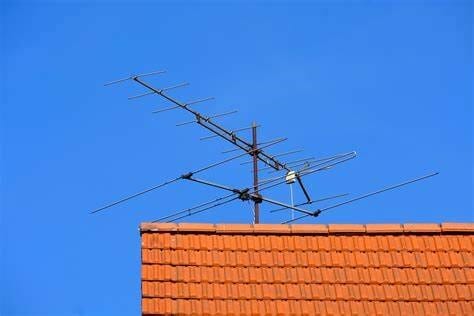
This is the part where I get a lot of questions and concerns. As I have already mentioned, you need to erect your antenna as high as you possibly can. Antennas that have been erected high enough can pull in clear channels. Basically, the higher you go the better signals you get. There are no precise or standard heights for HDTV antenna installations.
You must have noticed that most folks mount their antennas on the rooftops. Rooftop mounting enables the antennas to exceed the height of most trees (obstructions). In my experience, I recommend mounting a TV antenna 30 to 40 feet high. To get your antenna that high, check these ideas and insights below:
- Is rooftop mounting the best option for you? In this type of TV antenna mounting, you need to drill several holes through your roof. This technique will ensure that you will be well above most tree lines, especially if you are on a 2-storied building. You can use a 3-Foot Tripod Mount that has a 2-inch OD Mast to get the job done.
- You can use the old-style antenna towers that have not been in use for years, to meet the desired height. This is the simplest way of reaching the desired height. Alternatively, you can fetch one of these antenna kits from an online store. You may install it yourself.
- You can as well affix a new-style telescoping antenna mast to a pergola/shed.
These options will help you elevate your antenna as high as possible for maximum signal reception, and clear channels.
Things That Will Help You Maximize the Signal Strength
A strong signal is necessary to get clear channels. It is therefore important to improve the signal strength of your HDTV antenna. Below are a few tips to boost your antenna signal strength:
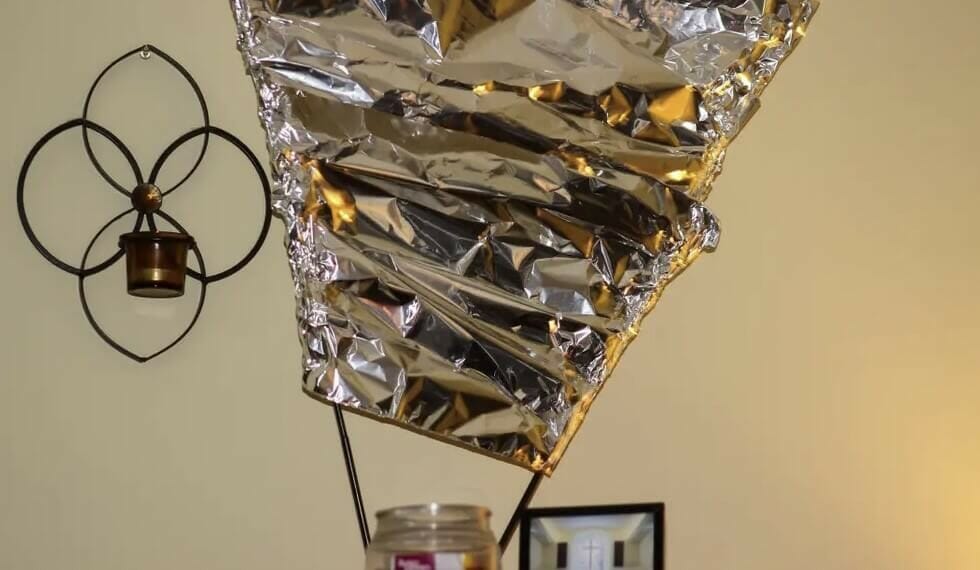
- Use aluminum foil. Aluminum foil can magically transform a weak signal into a stable and strong signal. Wrap the aluminum foil around your HDTV antenna. The aluminum foil will increase the surface area and the conductivity of the antennas, effectively boosting the signal strength that the antennas receive. (2)
- You can use amplifier/antenna boosters to boost the signal. Amplifiers are sometimes necessary to overcome signal loss related to the splitters and junctions.
- Use a few splitters. If you cannot avoid the use of splitters, then minimize them. Splitters cut your antenna signal into halves; you will lose signal while splitting them. That will impact your signal strength negatively. Try your best to stay away from the use of splitters. Modern technology is quite sufficient.
- You can use a network tuner in the place of splitters. Network tuners connect a single antenna feed from your HDTV antenna and then link it to your Wi-Fi network – or even a wired network. You will be able to stream several antenna signals to various devices simultaneously without experiencing signal degradation.
The Quality and Range of your Antenna
This is a straightforward concept; a high-quality antenna provides the best quality signal. There are many high-quality HDTV antennas on the market. Quality is one of the key ingredients for maximum signal reception, therefore you should buy a high-quality antenna.
Most digital antennas are classified according to their ranges. For instance, a 50 miles range antenna can fetch and relay a strong signal from a broadcasting tower that’s 50 miles away. Long-range antennas cost more than short-range antennas. So, the closer you are to the broadcasting tower the better.
Do not use a short-range antenna if you are very far from the broadcasting tower, you will get very poor or no signal at all.
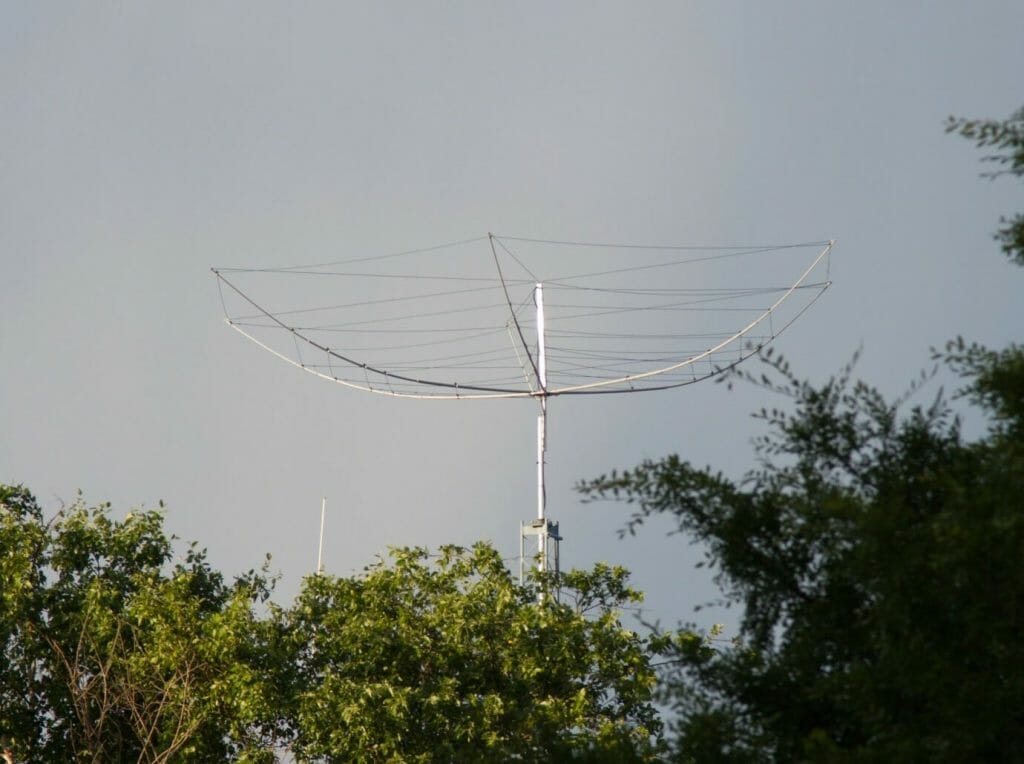
Keep your Cable Runs as Short as Possible
Another important factor to consider is the cable runs; you need to keep them short by limiting the length of the RG6 or coax cable run.
Keeping the coax cable runs short will curb signal loss; signal loss can greatly impact the quality of the HDTV antenna installation. Study shows that a 50-foot coaxial cable experiences slight/noticeable signal loss, while a 100-foot cable can lose almost one-third of the original signal input. So, please ensure you prevent signal loss by limiting the cable runs. You also need to ground your antenna properly to reduce noise.
Take a look at some of our related articles below.
- How to make a TV antenna with aluminum foil
- How far can an outdoor antenna reach
- Best coaxial cable for HDTV
References
(1) panic – https://www.mayoclinic.org/diseases-conditions/panic-attacks/symptoms-causes/syc-20376021
(2) aluminum foil – https://www.allrecipes.com/article/things-you-should-never-do-with-aluminum-foil/

